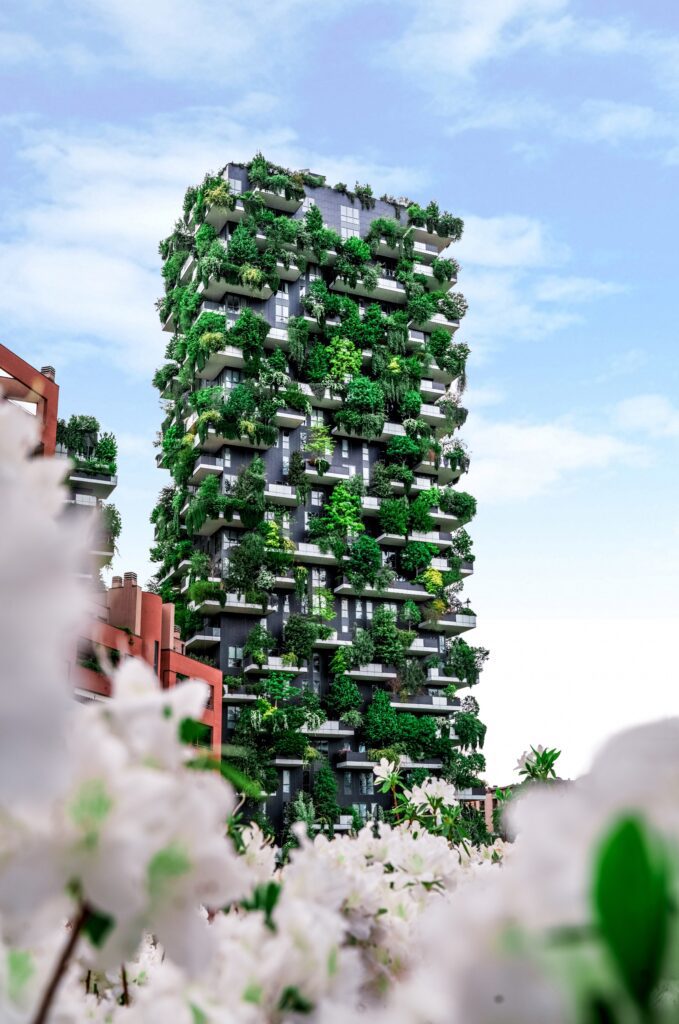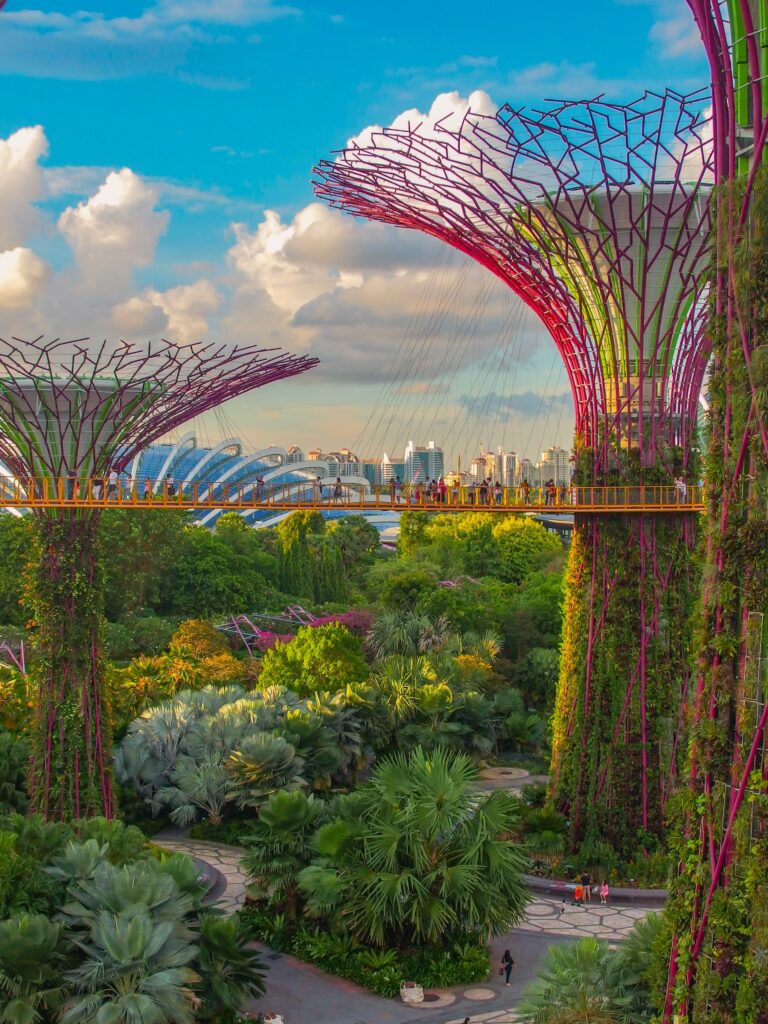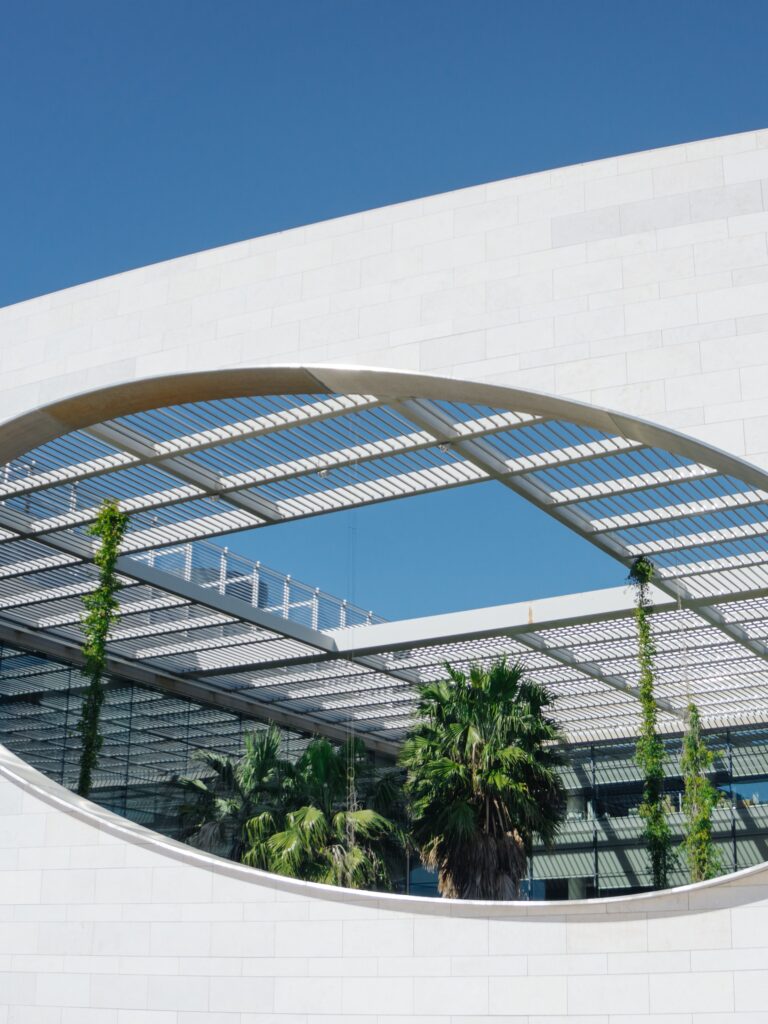Imagine walking into a shopping center and being greeted not just by delightful retail spaces, but also lush, tranquil green spaces that make your shopping experience serene and refreshing. This is precisely what the article “Incorporating Green Spaces In Modern Shopping Center Designs” seeks to explore. By incorporating nature into shopping center settings, architects and city planners attempt to bring the outside in; fostering a thriving, vibrant shopping environment that contributes positively not just to customer satisfaction, but also to sustainability efforts.
The Importance of Green Spaces in Shopping Centers
As surrounding urban landscapes become greener, shopping centers are following suit. Incorporating green spaces in shopping malls isn’t just about livening up the concrete jungle for aesthetic reasons, it’s about creating atmosphere and experience that appeal to everyone’s senses. The advantages of doing so are numerous and impactful.
Benefits for Customers
Green spaces can significantly improve the shopping experience by providing customers with a moment of peace and tranquility amidst the bustle of shopping. Not only does a lush green pocket in a mall serve as a perfect place to relax, but also helps lower stress levels and enhances overall mood thanks to the calming effect of nature.
Benefits for Retailers
For retailers, green spaces provide an opportunity to differentiate themselves from competitors. Additionally, these spaces can help increase foot traffic and dwell time. The more time customers spend at a shopping center, the higher the likelihood of making more purchases.
Environmental Advantages
The environmental benefits of green spaces are vast. Firstly, they help reduce the heat island effect, prevalent in concrete-covered urban areas. The plants help lower the temperature and improve the air quality by absorbing Co2 emissions, resulting in a healthier environment. It’s also an excellent opportunity for malls to exercise their social responsibility by contributing to environmental sustainability.
Examining Existing Green Spaces in Shopping Centres
Examples of successfully created green spaces in shopping centers across the world can guide developers in this undertaking. It’s also essential to understand common features of these spaces.
Successful Global Examples
Shopping centres like the Village Mall in Brazil and Chadstone Shopping Centre in Australia are global examples of spaces that have successfully integrated nature. They make use of natural light, indoor vegetation, and water features to add a refreshing touch to shopping.
A Look at Local Achievements
On a local level, many shopping centers have embraced green spaces. For instance, the incorporation of mini parks and open-air pathways have been successful in enticing shoppers and creating an eco-friendly ambiance.
Analyzing Common Features
Common features of successful green spaces include a healthy mix of sun-kissed open areas and shaded spaces. In many instances, water features, seating arrangements, and walkways are incorporated, creating an environment that encourages relaxation and customer interaction.



This image is property of images.unsplash.com.
Planning and Designing Green Spaces
To successfully incorporate green spaces in a mall, meticulous planning and designing are necessary. From selecting the space’s location to ensuring its accessibility, many factors are considered.
Considerations for Green Space Locations
Location plays a critical role in the impact of a mall’s green space. It should be placed where it can be easily accessed by patrons and should also be sufficiently noticeable to draw people in.
Design Features and their Functions
The design elements used should serve a particular function. For example, use of water features can assist in maintaining humidity levels, while shaded areas help protect visitors from direct sunlight.
Ensuring Accessibility and Visibility
The accessibility and visibility of the green space should not be compromised. Its design should make it welcoming and accommodating for everyone, including those with mobility issues.
Infrastructure and Maintenance Planning
The architectural design of green spaces should be such that they can be maintained without any difficulties. Despite their aesthetic value, if upkeep becomes a challenge, it could lead to areas falling into neglect.
Elements of Green Spaces
The choice of elements in a green space can create a significant impact. Each aspect holds a specific function and contributes to the overall experience of the space.
Plant Selection and Care
Including locally grown plants is highly recommendable as they thrive naturally in the local climate. They’re also likely to require lesser maintenance than exotic varieties.
Water Features and Considerations
Water features like fountains or ponds add a visually stunning aspect to the green space, but adequate maintenance like regular cleaning and waste management should be ensured.
Creating Shaded Areas
Shaded areas are a must in green spaces for people to rest and avoid direct sunlight, especially during summer. These areas can be created with trees or architectural structures.
Incorporating Rest Areas
The addition of benches or rest areas facilitate leisure and relaxation amidst shopping. It’s key in enticing customers to stay longer in the shopping center.



This image is property of images.unsplash.com.
Integrating Green Spaces with Retail Spaces
The integration of green and retail spaces should appear seamless to make shopping an enjoyable experience.
Improving Visual Aesthetic
Green spaces can significantly enhance the visual aesthetic of a shopping centre, encompassing a beautiful blend of nature and infrastructure.
Creating a Seamless Transition
It’s crucial that transitioning between green and retail spaces is smooth and intuitive. This often involves the strategic placement of pathways, entrances, and exits.
Incorporating Branding into Green Spaces
Green spaces can be seamlessly blended with mall branding. By using complementary colors and designs, it’s possible to convey brand identity subtly within the green area.
Green Space Events and Activities
These areas also make an excellent venue for various events and activities which can help attract even more visitors.
Using Green Spaces for Promotions
Running promotions in these spaces such as product launches, book signings, and food tasting events can help attract and engage customers.
Community Events in Green Spaces
Green spaces can also host community events like farmer’s markets, local fairs, or even outdoor yoga classes. These events combine shopping with recreational activities, making the shopping centre a hub of community engagement.
Seasonal Displays and Decorations
Including seasonal displays and decorations in the green space can give it a festive look during the holiday seasons, adding vibrancy and improving customer satisfaction.
Family-friendly Activities
Green spaces should ideally cater to all age groups. Creating dedicated play zones for kids or picnic spots can make the mall a popular destination for family outings.



This image is property of images.unsplash.com.
Sustainability Considerations
Designing green spaces in malls isn’t just about aesthetics, but it also carries a responsibility towards sustainable practice.
Water Conservation Measures
Whether it’s designing efficient irrigation systems or using recycled water, water conservation measures should be a part of the planning.
Waste Management and Recycling
A system for managing and recycling waste, particularly organic waste from plants, should be in place. Sustainable waste management practices contribute significantly to protecting the environment.
Energy Efficiency Included in Design
The design of green spaces should facilitate energy conservation. Using natural light wherever possible and incorporating energy-efficient lighting are some ways to do this.
Commercial Advantages of Green Spaces
Apart from the aesthetic, environmental, and social advantages, green spaces offer benefits that directly impact business profits.
Increasing Foot Traffic
Green spaces can draw more people to the mall. When a mall is not just a shopping venue but a place to relax or take a nature break, it becomes a preferred destination.
Promoting Longer Visit Duration
The presence of calming and attractive green spots encourages shoppers to stay longer, which often results in increased purchases.
Attracting a Broader Demographics
Scenic green spaces can attract a wider demographic, from teenagers looking for a hangout place to senior citizens looking for a quiet leisure space.
Improving Customer Satisfaction
An aesthetically pleasing and relaxed environment positively impacts customer satisfaction, leading to increased customer loyalty and repeat visits.
Challenges and Solutions in Incorporating Green Spaces
Creating a green space in a mall doesn’t come without challenges, but they can be mitigated with strategic planning and problem-solving.
Potential Design and Construction Challenges
Challenges like space constraints, complex construction requirements and high initial investment costs should be handled with expert architectural and financial planning.
Security and Safety Concerns
Ensuring safety and security in the green spaces is vital. Adequate lighting, CCTV cameras, and routine patrolling can make these spaces safe for everyone.
Addressing Maintenance Issues
Regular upkeep of the green spaces is crucial to maintain their appeal over time. A comprehensive maintenance plan and trained staff can help address this challenge.
Future of Green Spaces in Shopping Centers
Green spaces will undoubtedly play a significant role in the future design of shopping centres, especially with increasing environmental consciousness.
Innovation and Technology in Green Space Design
The introduction of new technologies and innovative design strategies will allow for the creation of green spaces that are not only beautiful but also sustainable.
Influence of Green Spaces on New Shopping Center Developments
Green spaces are gradually becoming an essential component in the design of new shopping centers. They promise to provide a more endearing and environmentally friendly face to retail while enhancing the shopping experience. The future of malls appears greener, and it’s a change that everyone can look forward to happily.
